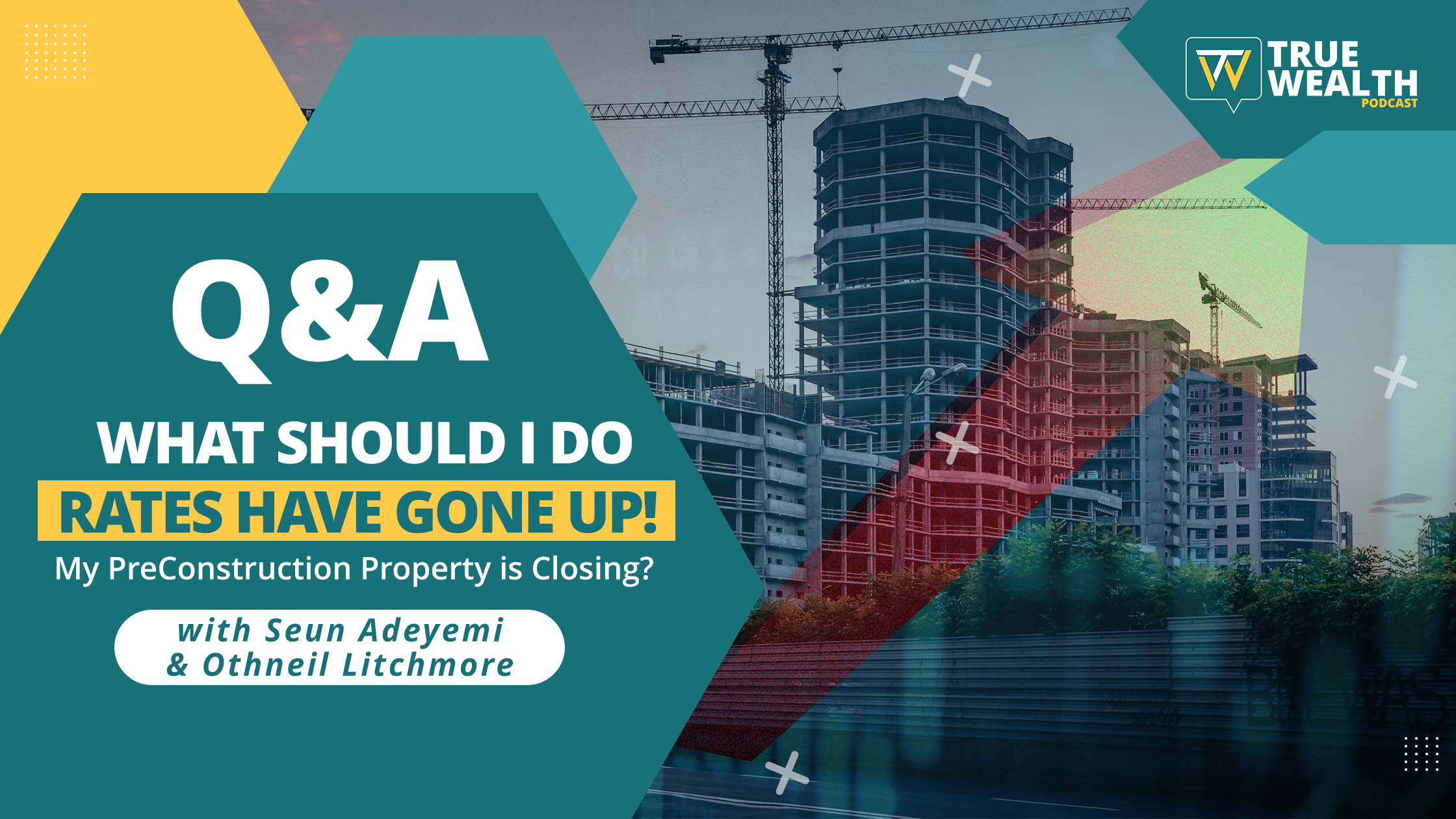Rates have Gone up!

Introduction:
In a recent episode of the True Wealth podcast, hosts Seun Adeyemi and Othniel Litchmore delved into a common dilemma faced by real estate investors: whether to hold or sell a pre-construction property. The hosts examined a specific case study where a client had purchased a pre-construction condo townhome three years ago and was now grappling with the decision due to rising interest rates and negative cash flow. In this detailed blog post, we will explore the factors discussed by Seun and Othniel and shed light on the considerations involved in making an informed choice.
Assessing Affordability:
Seun Adeyemi emphasized the importance of thoroughly considering affordability when deciding whether to live in or rent out the property. He noted that a general rule of thumb is for an individual’s net take-home pay to allocate no more than 40% to housing costs, including the mortgage, property taxes, and condo fees. However, in the scenario discussed, the expected monthly carrying cost of $3,700 would exceed the client’s income limits, placing a significant strain on their finances.
Evaluating Rental Income:
Othniel Litchmore conducted a meticulous rental analysis to determine the potential rental income that could be generated from the property. After assessing the market conditions, he estimated that the property could command a monthly rent of approximately $2,700. However, with a negative cash flow of $1,000 per month, even renting out the property would not alleviate the financial burden for the client. Seun and Othniel acknowledged that this situation deviated from the client’s initial investment plan, leading to further contemplation about the best course of action.
Consideration of Interest Rates and Market Value:
The hosts engaged in an in-depth discussion about the potential impact of interest rates and market trends on the property’s value. Seun noted that the days of historically low interest rates were likely behind us, and any future rate changes would not significantly alleviate the negative cash flow situation. Additionally, while Othniel suggested that property prices might appreciate by 5-10% annually, Seun expressed caution due to the possibility of a recession or other factors that could influence the market negatively. They emphasized the need to consider the overall trajectory of the market and the potential stabilization or slight decrease in property prices.
Evaluating Holding or Selling:
To determine whether the client should hold onto or sell the property, Seun and Othniel conducted a detailed financial analysis. They factored in various scenarios and variables, such as potential appreciation in property value and the costs associated with holding or selling. For instance, if the property were to appreciate by 5% over the next year, holding onto it might yield a net gain of approximately $18,000 after considering the negative cash flow of $12,000. However, if prices remained stagnant or experienced minimal appreciation, selling the property would be a more financially prudent choice. The hosts also discussed estimated costs, such as realtor fees and legal expenses, which would reduce the net profit from the sale.
Tax Implications:
Another crucial aspect to consider was the potential tax implications and deductions associated with the property. Othniel highlighted that a significant portion of the mortgage payment constituted interest, which could be tax-deductible. When accounting for deductible expenses such as interest payments, condo fees, and property taxes, the net negative cash flow would be reduced, making it more manageable for the client. This consideration could potentially tilt the balance toward holding onto the property for a longer period.
Conclusion:
After a thorough analysis of the client’s situation, Seun and Othniel provided insightful perspectives on the decision-making process involved in whether to hold or sell a pre-construction property. Ultimately, they concluded that the client should evaluate the long-term financial viability and affordability of the investment, factoring in potential market trends, interest rates, rental income, tax implications, and associated costs. Making an informed choice would require a comprehensive assessment of these factors, tailored to the individual’s circumstances and goals.
